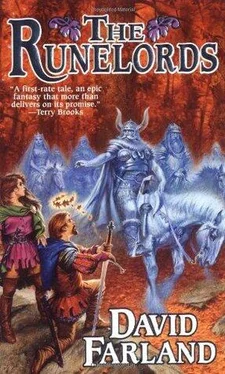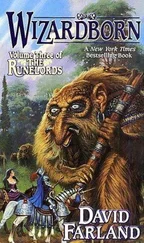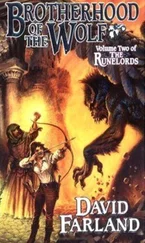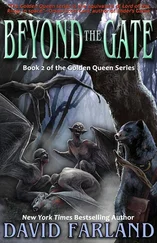David Farland - The Sum of All Men
Здесь есть возможность читать онлайн «David Farland - The Sum of All Men» весь текст электронной книги совершенно бесплатно (целиком полную версию без сокращений). В некоторых случаях можно слушать аудио, скачать через торрент в формате fb2 и присутствует краткое содержание. Жанр: Фэнтези, на английском языке. Описание произведения, (предисловие) а так же отзывы посетителей доступны на портале библиотеки ЛибКат.
- Название:The Sum of All Men
- Автор:
- Жанр:
- Год:неизвестен
- ISBN:нет данных
- Рейтинг книги:3 / 5. Голосов: 1
-
Избранное:Добавить в избранное
- Отзывы:
-
Ваша оценка:
- 60
- 1
- 2
- 3
- 4
- 5
The Sum of All Men: краткое содержание, описание и аннотация
Предлагаем к чтению аннотацию, описание, краткое содержание или предисловие (зависит от того, что написал сам автор книги «The Sum of All Men»). Если вы не нашли необходимую информацию о книге — напишите в комментариях, мы постараемся отыскать её.
The Sum of All Men — читать онлайн бесплатно полную книгу (весь текст) целиком
Ниже представлен текст книги, разбитый по страницам. Система сохранения места последней прочитанной страницы, позволяет с удобством читать онлайн бесплатно книгу «The Sum of All Men», без необходимости каждый раз заново искать на чём Вы остановились. Поставьте закладку, и сможете в любой момент перейти на страницу, на которой закончили чтение.
Интервал:
Закладка:
Captain Stroecker's face paled. Creating a serpent ring was a dangerous gambit. With these forcibles, Orden could take an endowment of metabolism from a man, who would then take an endowment from another, who would take an endowment from another, so that each man became one in a long line of vectors. In the parlance of facilitators, this line of men was called a “serpent,” for the man at the head of the chain became very powerful, deadly as a poisoned serpent, and should he be destroyed, should the serpent be beheaded, the next man in line would arise, hardly diminished in power from the first.
But if a man took too many endowments of metabolism, it was sure death. He might become a great warrior for a few hours or days, but he would burn himself out like a shooting star. Desperate men had done it in the past, at times. But it would be hard to find twenty able fighters willing to form a serpent, to throw away their lives.
So Orden offered them some hope. In this case, last of all, the King would give his own endowment of metabolism to the last man in the serpent, so that every man in the serpent became vectored to another. Thus, with twenty forcibles, twenty men could all share their metabolism, forming a pool from which any one warrior could draw. Since Orden had the most endowments and the greatest skill in battle, the task of fighting Raj Ahten would fall to him. He would volunteer to act as “the serpent's head,” and so long as the other men in the ring remained inert, Orden would be able to draw upon their surplus metabolism. Many of Orden's soldiers had metabolism from one or two men. So, as the serpent's head, Orden would be able to move with the speed of thirty or forty men.
And the hope that Orden offered his men was this: that if he himself managed to survive the battle, the serpent ring would remain unbroken, and each man in the ring would thus be able to continue his life with some degree of normalcy.
But still it was a dangerous gambit. If any other man in the ring were forced into battle, that man might well draw away metabolism that Orden needed at a critical moment, sabotaging Orden's chances in the fight. Even worse, if a member of the serpent ring were slain, Orden might find himself a mere vector to another man, might suddenly fall in battle, unable to move.
No, if anyone died in this battle, it would best be the serpent's head—Orden himself. For if Orden died, if the ring broke, then the burden of. metabolism would fall to the person who had granted Orden his endowment.
This next man in line would become the new serpent's head. And he could continue to fight Raj Ahten's forces, spreading destruction.
Yet even if Orden won his battle with Raj Ahten, even if the serpent ring remained intact today, Orden was still calling upon all his men to make a terrible sacrifice. For at some time, hopefully on some distant morning, the circle would break. A man from the circle would die in some battle, or would fall prey to illness. When that happened, all other vectors would fall into the deep slumber of those who'd given metabolism, with the exception of one man, the new serpent's head, doomed to age and die in a matter of months.
Regardless of how the battle played out today, every man in the ring would be called upon to sacrifice some portion of his life.
Knowing all this, Orden felt gratified when his captain bent low at the waist, smiling, and said, “I would be pleased to serve with you, if you would have me in this ring.”
“Thank you,” Orden said, “but you'll have to miss this opportunity to waste your life. Duty calls you elsewhere.”
Captain Stroecker turned smartly and left the great hall. Orden followed him out to gather his troops for battle.
Already his captains had set men on the walls. Artillerymen had pushed the catapults out from beneath the protective enclosures in the towers above the gates, had begun firing, testing their ranges in the dark. It was a poor time for such tests, but Orden did not know if they'd ever get a chance to test the catapults in daylight.
At that moment, a horn sounded in the western hills, off toward the road from Castle Dreis.
Orden smiled grimly. So, he thought, the Earl comes at last, hoping for a share of the treasure.
34
The Running Man
In Khuram it is said that a running man with a knife can kill two thousand men in a single night. Borenson worked faster than that, but then he was a force soldier, and he carried a knife in each hand.
He did not think about what he did, did not watch the quivering of his victims or listen to the thrash of limbs or gurgle of blood. For most of the night, he hurried through the job in a mindless horror.
Three hours after he entered the Dedicates' Keep, he finished the deed. It was inevitable that some of the Dedicates woke and fought him. It was inevitable that some women he killed were beautiful, and some men were young and should have had full lives before them. It was inevitable that no matter how hard he tried to block the memories of their faces from his mind, moments would come that he knew he'd never forget: a blind woman clutching at his surcoat, begging him to wait; the smile of a drinking companion from the hunts, Captain Derrow, who bid him a final goodbye with a knowing wink.
Halfway through the deed, Borenson recognized that this was wanted of him, that Raj Ahten had left the Dedicates unguarded knowing they would be killed. He had no compassion for these people, valued them not at all.
Let friend dispose of friend, brother raise knife against brother. Let the nations of the North be torn asunder. That was what Raj Ahten wanted, and Borenson knew that even as he slaughtered these innocents, he had become a tool in Raj Ahten's hand.
Leaving the Dedicates totally unguarded was not necessary. Four or five good men could have provided some protection. Could the monster take such delight in this?
Borenson felt his mind tear open like a seeping wound, every moment became a pain. Yet it was his duty to obey his lord without question. His duty to kill these people, and even as he revolted at the slaughter, he found himself wondering time and time again, Have I killed them all? Have I fulfilled my duty? Is this all, or has Raj Ahten hidden some of them?
For if he could not reach the vectors that Raj Ahten had taken, Borenson needed to kill every Dedicate who fed Raj Ahten's power.
Thus, when he finally unlocked the portcullis to the keep, blood covered Borenson from helm to boot.
He walked into Market Street, dropped his knives to the pavement, then stood for a long time, letting rain wash over his face, letting it wash over his hands. The coldness of it felt good, but during the past hours the blood had clotted in gobbets. A little rainwater would not wash it free.
A fey mood took Borenson. He no longer wanted to be a soldier for Orden, or for any king. His helm felt too constraining, as if it would crush his head, it hurt so. He threw it to the ground so that it rattled and clattered as it rolled along the paving stones, down the street.
Then he walked out of Castle Sylvarresta.
No one stopped him. Only a pitiful guard had been set.
When he reached the city gate, the young fellow on guard took one look at his blood-covered face and fell back, crying, raising his index finger and the thumb as a ward against ghosts.
Borenson shouted a cry that rang from the walls, then ran out into the rain, across the burned fields toward the distant copse where he'd hidden his horse.
In the darkness and rain, a half-dozen nomen with long spears made the mistake of jumping him. They came rushing toward him in a little vale, leaping from the blackened earth like wild things, running forward with their longspears.
Their red eyes nearly glowed in the darkness, and their thick manes made them look somehow wolfish. They snarled and loped forward on short legs, sometimes putting a knuckle to the ground.
Читать дальшеИнтервал:
Закладка:
Похожие книги на «The Sum of All Men»
Представляем Вашему вниманию похожие книги на «The Sum of All Men» списком для выбора. Мы отобрали схожую по названию и смыслу литературу в надежде предоставить читателям больше вариантов отыскать новые, интересные, ещё непрочитанные произведения.
Обсуждение, отзывы о книге «The Sum of All Men» и просто собственные мнения читателей. Оставьте ваши комментарии, напишите, что Вы думаете о произведении, его смысле или главных героях. Укажите что конкретно понравилось, а что нет, и почему Вы так считаете.












